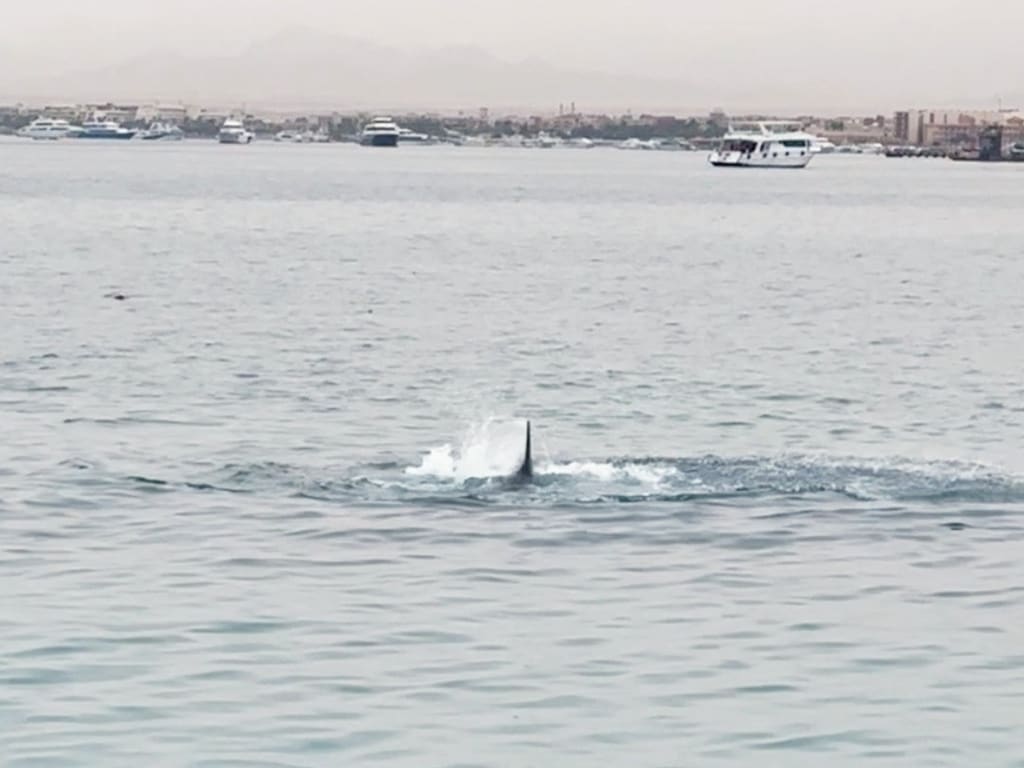THE LESSONS FROM THE RECENT SHARK ATTACK IN EGYPT
The Lessons

The recent shark attack in Egypt's Red Sea resort town of Sharm el-Sheik has left many asking the same question: how can such incidents be avoided in the future? Such tragic shark attack is also a lesson to the world about the importance of conservation and respect for our planet's precious wildlife. But the fact still remains it didn’t start today.
In 2010, a shark attack occurred in the Red Sea resort town of Sharm el-Sheikh. A French tourist was attacked while snorkeling in the waters off Naama Bay and sustained serious injuries. Still the attack was linked to illegal fishing practices, which included removing sharks from their natural environment for sale on the black market. Since then, Egyptian authorities have been more vigilant in ensuring that illegal fishing practices are brought to an end. And I know the next question on my mind will be what changed?
In the case of the Egyptian shark attack, it appears to have been caused by illegal fishing practices - an all-too-common practice in many areas of the world. Fishers are increasingly turning to more destructive means to catch a wide range of species, including large sharks. These catches are often sold on the black market, with little regard for their protection. The attack was reported to have been caused by human interference and careless pollution, which has caused a disruption to the marine ecology in the area. The main cause of such a disruption is the improper disposal of human waste and extreme ocean bottom fishing, which has killed much of the ocean's wildlife as well as disturbed natural ecological patterns in the Red Sea. This has led to an explosion in the number of sharks and other dangerous predators, making the waters in the area increasingly hazardous for beachgoers. The lesson that we can learn from this, is that the world must learn to work together to ensure that our oceans are protected and conserved, and that we must take appropriate steps to reduce ocean pollution and over-fishing. Also illegal and unsustainable fishing practices must be stopped. Fishing regulations must be followed and enforced, and fishermen should be aware of the potential damage they can cause to marine ecosystems. What’s more, local communities must be encouraged to report any suspicious activity near them. With more eyes on the water, illegal fishing can be better monitored and stopped. Governments and private sector organisations also have a role to play, providing greater awareness of the dangers of illegal fishing and the impact it has on local ecosystems. Finally, coastal residents should pay attention to their environment. A number of sharks, both large and small, naturally inhabit the waters off the Egyptian coast. Can you add to it Citizens must also be knowledgeable of swimming safety in the ocean. They should be aware of shark migration patterns to reduce their risk of attacks.
Studies have shown that proper disposal and proper fishing practices can help preserve ocean wildlife and create a healthier marine environment. Additionally, increased awareness and education about the dangers of ocean pollution must be spread far and wide, in order to avoid further incidents such as this one. Beachgoers must also be informed of the need for extreme caution when entering the water, as there may always be lurching danger nearby and also be taught on some preventive measures to undertake.
To me, paying attention to ocean warnings also helps. Sharks near swimming areas are often tagged and monitored by marine experts. When they identify an unusual presence of a shark, the public should stay alert. Educational programmes about ocean conservation and sustainability are the best way to make a lasting impact on sustainable fishing practices and reduce the risk of shark attacks. Awareness of the need to properly dispose of waste, and to refrain from overfishing or poaching, should be widely promoted. Additionally, citizens should be encouraged to support no-take zones, which help protect areas that can be the breeding grounds for different species. Can you be more detailed Educational programmes about ocean conservation and sustainability should be more widely promoted, especially amongst coastal communities and fishermen. Learning about appropriate fishing methods, such as using handline fishing or trolling rather than more destructive practices such as longline fishing, can help protect marine ecosystems and avoid the threat of shark attacks. By educating local communities about the importance of sustainable fishing methods, we can reduce the chances of illegal fishing occurring in the future. In addition, citizens should be encouraged to support no-take zones, which are areas where fishing is prohibited to help protect breeding grounds of different species. Governments should also be encouraged to provide grants and incentives for local communities to develop sustainable fishing practices. By taking the time to learn more about the ocean and the need for sustainable fishing practices, we can reduce the risk of shark attacks and help ensure the future of our oceans.
About the Creator
Abby Iykay
I am 4real and I love being real..... Come let's explore!!






Comments
There are no comments for this story
Be the first to respond and start the conversation.